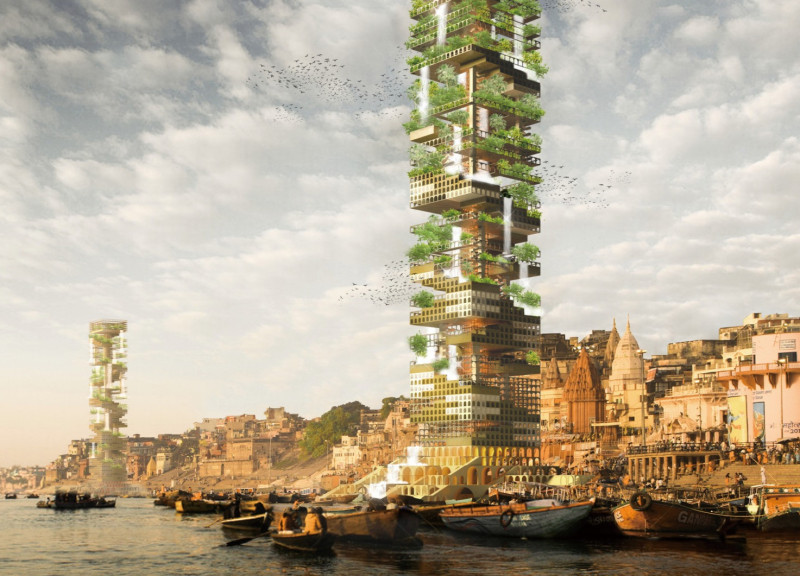5 key facts about this project
The Afterlife Hostel is located on the banks of the Ganges River in Varanasi, India. It serves as a space for individuals at the end of their lives, providing not only shelter but also a place for reflection and community. The design focuses on bringing together spiritual traditions and daily routines, creating an environment where both aspects can coexist.
Cremation Space
The building features a dedicated cremation space at its base, where ceremonies take place close to the river. This area is designed to ensure proper ventilation while maintaining a respectful atmosphere for these important rituals. Being situated near the Ganges highlights the river's essential role in Hindu funerary practices and its significance in the spiritual journey of the departed.
Meditation Garden
At the top of the structure lies a meditation garden. This peaceful area allows residents to take part in yoga and find moments of quiet reflection. With views overlooking the Ganges, the garden offers a connection to nature that enhances the spiritual experience. The design ensures that individuals can engage in personal practices while enjoying a sense of solitude and calm.
Water Features
Water plays a key role in the overall architecture, with streams running throughout the building. These water features are sourced from the Ganges itself, providing opportunities for ritual bathing. This incorporation emphasizes the importance of purification in Hindu tradition while addressing concerns about water quality in the area. The gentle sound of flowing water adds to the calm atmosphere within the hostel.
Functional Areas
Spaces within the hostel are arranged to promote both social interaction and quiet reflection. Common areas allow residents to gather, while private zones offer sanctuary for personal contemplation. This flexibility acknowledges the emotional complexities experienced by individuals nearing the end of life and facilitates a supportive environment for everyone.
Incorporating water flows into the design creates visual and auditory experiences that resonate with the essence of the Ganges. This detail enriches the environment, providing a deeper connection to the sacred river and its cultural significance.



















































